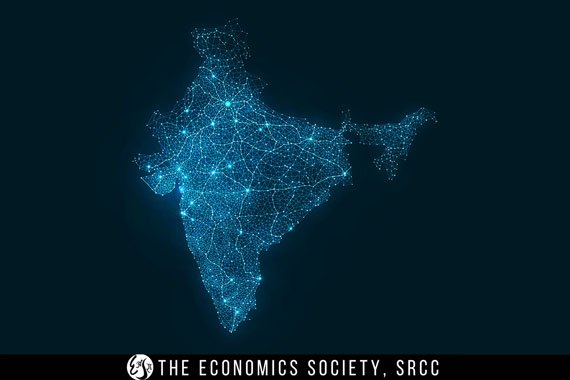
The Fallacy Of Blame: How Blaming Immigrants Leads Us Astray From Reality

Whenever faced with a quandary, we, hardwired to look for something or someone to blame, headlong tend to figure out the culprit; our mind can’t rest at ease until it pins its blame instinct onto some palpable existence, which conveniently is someone else. There’s an interesting episode from history when this newly encountered skin disease, now known as syphilis, was called by different names in different countries. It’s called the polish disease in Russia, the German disease in Poland, the French disease in Germany, the Italian disease in France and coming full circle, as the French disease in Italy.
As the liberal world order set afoot and fixated its feet over the years so did a sense of resentment, which reared its head and stirred sentiments among the majority, those who felt that they have been wronged by such a system, a system which siphons the windfall gains from ordinary people like them. Feeding on such resentments and passions, populism finds embrace. Be it in the United States or Britain, populist governments demagogue such sentiments and offer simple facile answers to resolve complex issues.
Immigration is arguably more contentious than ever and immigrants are attention-baits in today’s world. They being “not us” facilitates the needed-distance to unscrupulously blame them for purloining our dreams and opportunities besides diluting our national and culinary identities. We love simple explanations in shades of monochrome, and one which offers a scapegoat for our ennui and resentments is thus so appealing. But this passing the blame often leads us astray from observing things in objectivity, away from our psychological biases. In his paper, UC Irvine professor Shawn Rosenberg argues that democracy requires hard work, it needs its “citizens to be able to sift through large amounts of information and process the good from the bad, the true from the false.” But it’s difficult not to yield to our biases and appreciate the things which don’t conform to our beliefs. Appropriating the blame of the economic woes to immigrants is that simple misguided answer gaining grip. Creation of a scapegoat like that convinces people into believing that the solution lies in driving those people out without deigning to consider the economic ramifications of the same.
Lurking beneath the advanced economies, say the United States or Japan, lies a demographic time bomb. Saddled with an ageing population these economies have but little alternative than to import labour from third world countries; Japan, which was initially tentative, has already started to recognise this need and is nudging the way open for workers. Without workers, in a shrinking population as theirs, manufacturing might decline. To alleviate this acute shortage of workers across industries, the government has rolled out a 5-year residency program for migrant workers. In Canada, with 580,000 jobs in the $1.7 trillion economy lying vacant, last year it welcomed the highest number of economic migrants ever.
In these economies, public purses will be strained in providing welfare programs and other safety nets to the ageing population. One needs to ask who will pay for these? Research shows that the tax contributions by these migrant workers pay for welfare social services and ease the burden on coffers paying for the pension systems. They work hard to build a new life and contribute to the productive capacity and the GDP of the country they are in.
One of the reasons immigration is contentious is that the vanilla economics explanation that more workers mean increased labour supply and lesser wage doesn’t quite square with reality. The prevalent notion that immigrants take jobs away from natives, collapses under closer scrutiny. While an increased number of people does increase labour supply, since they expend in the economy as well, the labour demand concurrently rises, thus partially offsetting the pressure on wages.
Unskilled immigrants take up jobs requiring less of social skills and in general are willing to do work which the natives don’t want to, thus providing natives with frugal convenience like getting one’s lawn mowed or babysat, moreover they can use this reduced strain on their schedule and utilise it in some productive work. Moreover, countries moving towards development tend to open up gaps in low skilled labour segments due to a falling fertility rate and rising educational attainment of natives who move on to jobs requiring higher education along with technical skills. Thus, immigrants appear to be taking jobs that natives are either “not available or unwilling to take.”
Studies suggest that immigrants grease the labour market into functioning more efficiently because they tend to be very mobile and more willing than natives to move from one place to another; the benefits of which accrue to the denizens.
Skilled migrants are willing to take risks, as uprooting themselves from their birthplace and building a new life, speak of their inherent entrepreneurial spirit, which drives innovations and startups. Center for American Entrepreneurship reports that 43% of the Fortune 500 companies were founded or co-founded by first and second-generation immigrants; Ford, Amazon, Apple and Google to name a few.
Recounting one aspect of immigration, the article makes an intended concession. We need to recognise these and overcome the appeal for simple misguided solutions. Populist nationalism, erecting more metaphorical and literal walls, and suspicion of the ‘others’ threaten to subvert the globalized liberal markets built over decades, at a time when countries need an international demand for their products and a young workforce to build them.
Blame without real solutions purports a false and dangerous belief. Moving over from the popular blame rhetoric towards the other end of the information aisle is more pressing than ever to be able to think and behave informedly in times like these when we are more polarized than ever, embedded in our chambers of like-minded popular echoes.
By Govind Gupta
You may also like

Technology Akin Catalyst
Adding {{itemName}} to cart
Added {{itemName}} to cart
